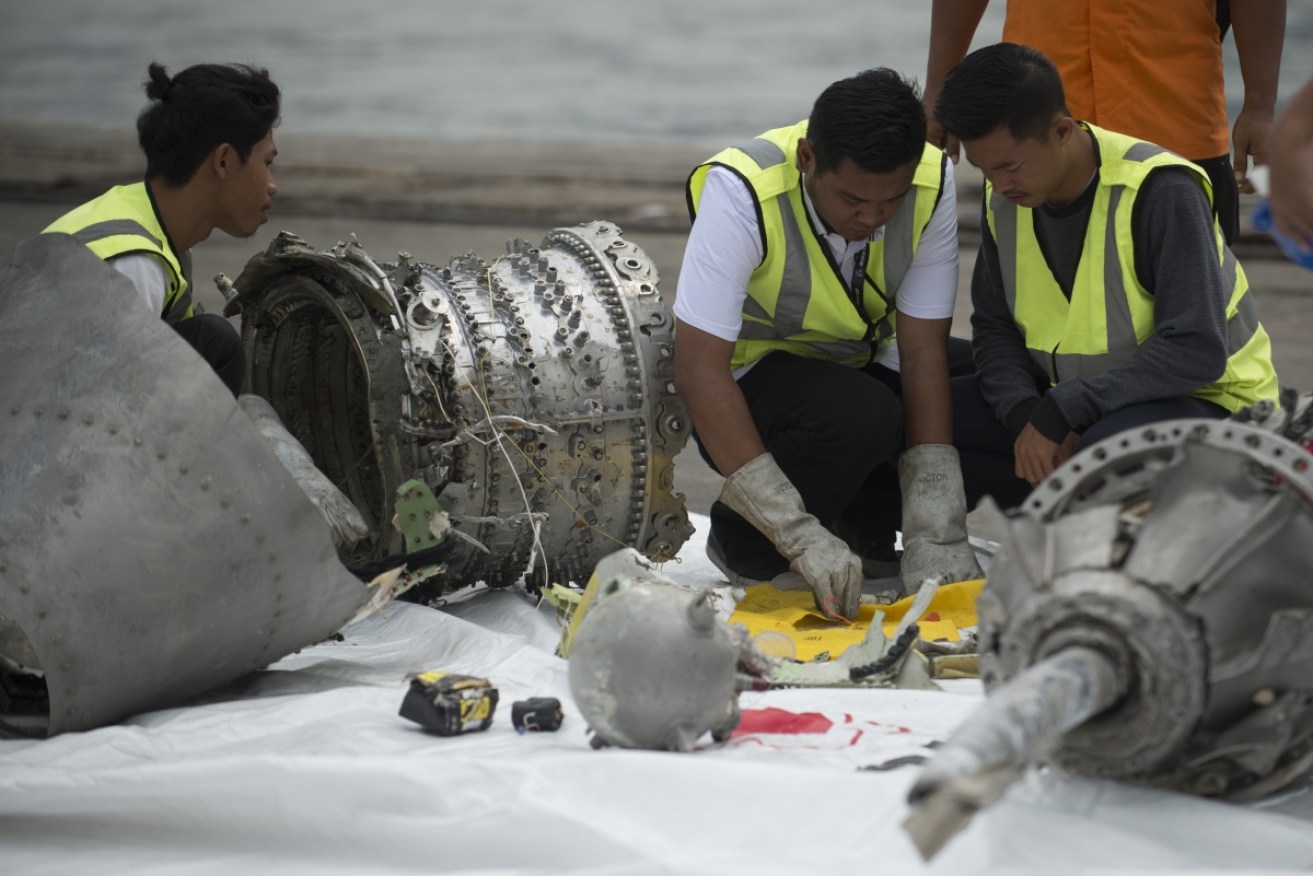Pilots ‘in the dark’ about flaw on doomed Lion Air plane


Investigators examine engine parts from Lion Air's doomed Boeing Max. Photo: Getty
The Lion Air plane that crashed off Indonesia had a potentially deadly flaw in its flight-control system that pilots claim they were not warned about.
Lion Air flight JT610, a Boeing Max 737, crashed into the Java Sea just 13 minutes after take-off on October 29, killing all 189 people on board.
About a week after the tragedy, Boeing issued a worldwide safety bulletin warning airlines of a potential fault in the new feature, known as the Angle of Attack sensor, on its Max planes.
Boeing has amended the flight control system on the Max series so that it automatically pushes the plane’s nose down if it senses the possibility of a stall.
Its warning noted that, under unusual conditions, the sensor could push the plane’s nose down unexpectedly and so strongly that flight crews could not pull it back up. In some circumstances, that might lead to a steep dive or crash.
The warning surprised pilots in the US, who say they had not been told about the Max’s unique amendments.
“It’s pretty asinine for them to put a system on an airplane and not tell the pilots who are operating the airplane, especially when it deals with flight controls,” Mike Michaelis, chairman of the safety committee for the Allied Pilots Association, which represents about 15,000 American Airlines pilots, told The Wall Street Journal. “Why weren’t they trained on it?”
U.S. pilots flying 737 MAX weren’t told about new automatic systems change linked to the deadly Lion Air crash.
“I’ve been flying the MAX-8 … for almost a year now," said an American Airlines pilot. "What the hell else don’t I know about this thing?”
https://t.co/7nJbg3i8wv— Dominic Gates (@dominicgates) November 13, 2018
Jon Weaks, president of the Southwest Airlines Pilots Association, told the Seattle Times that SouthWest Airlines and its pilots “were kept in the dark”.
“We do not like the fact that a new system was put on the aircraft and wasn’t disclosed to anyone or put in the manuals,” he said.
Is there anything else on the Max Boeing has not told the operators? If there is, we need to be informed.”
Indonesian authorities believe the Angle of Attack sensor fed bad data to flight JT610’s computer. That activated the system and repeatedly pushed down the plane’s nose, despite no risk of a stall.
Tracking data indicates that the Lion Air plane pitched up and down during its short time in the air before it nose-dived into the Java Sea.
Last week, Boeing’s warning was swiftly followed by a directive from America’s Federal Aviation Administration ordering that all airlines make pilots aware of the Max’s unique systems, and how to use them.
In a statement, Boeing said it was confident in the safety of its Max planes.
Indonesian authorities have found one of the black boxes from the fatal flight but are still searching for the cockpit voice recorder.
Virgin Australia, which has 30 Max aircraft on order, has said it is awaiting the outcome of the investigation into the doomed Lion Air flight before deciding on the future of its order.
-with agencies








